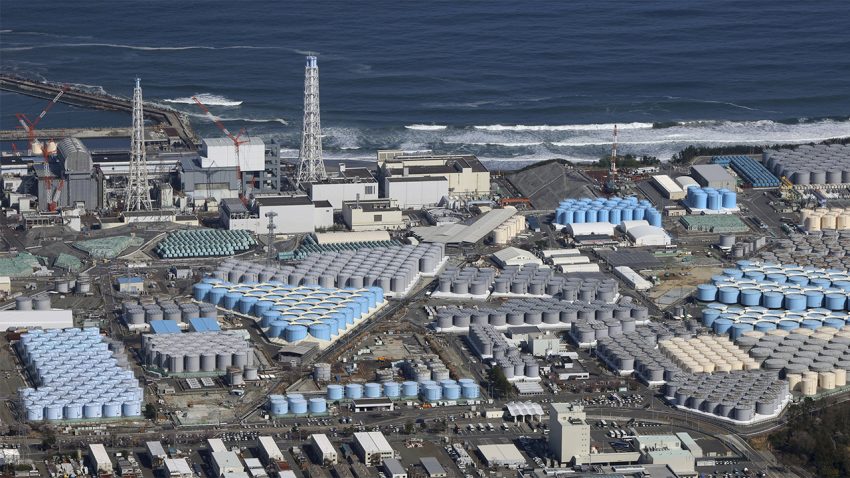The Governments of Niue and Tuvalu have raised their concerns over Japan’s release of treated radioactive wastewater from its Fukushima nuclear plant last Thursday.
More than a million tons of ALPS (Advanced Liquid Processing System) treated nuclear wastewater from the Fukushima Daiichi Nuclear Power Station is planned to be released into the Pacific Ocean over the next 30 years.
Premier of Niue, Dalton Tagelagi, says Niue has concerns about this release as the impacts to human health and environment are still unclear.
“It’s unfortunate that the Government of Japan has gone ahead with this discharge of nuclear wastewater into the Pacific so soon.
“The majority of Niue are coastal peoples, and the ocean is an integral part of our culture, traditions and livelihoods and we must protect it at all costs.
“As a Pacific Island Forum member, Niue stands with its Pacific brothers and sisters and is of the position that Japan should not have gone ahead with the release so soon until there is enough information available to make a fully informed assessment of what the short-term and long-term impacts are to human health and our environment.
“This release of treated nuclear wastewater is a transboundary and intergenerational issue and similar concerns were shared by other member nations at the recent Pacific Leaders Forum.
“However, given the Government of Japan has pushed ahead with its planned release, we expect to receive continued monitoring results from Japan to show that the initial discharges are safe, including continued independent reviews from The International Atomic Energy Agency (IAEA) and others.
“We are committed to preserving our precious natural resources for present and future generations and we call on Japan to reconsider the timing of its nuclear wastewater discharge into our Blue Pacific Continent,” said Premier Tagelagi.
Niue is a signatory to the Treaty of Rarotonga and is legally bound to keep the region free of environmental pollution by radioactive and nuclear waste and other radioactive matter, and to uphold legal obligations to prevent ocean dumping and any action to assist or encourage dumping by other states.
Niue’s Exclusive Economic Zone (EEZ) is its largest geographical resource and in 2017, Niue declared 40 percent of its EEZ as a marine protected area.
Meanwhile, Tuvalu’s Minister of Finance and Economic Development, Seve Paeniu, said he is “concerned, dismayed, disappointed and kind of surprised” that Japan – which has first-hand experience of nuclear material – is now putting nuclear waste into the Pacific Ocean.
“Tuvalu collects roughly about 45 percent of its total income from fisheries and fisheries resource through access licensing fees to foreign fishing fleets coming to fish in our surrounding waters,” he said.
“Not only that, the livelihoods of our people are solely dependent on the marine life, on the fisheries resources surrounding our waters.”
He said Tuvalu was not able to attend the International Atomic Energy Agency (IAEA) meeting but they will take every opportunity to bring this up with the Government of Japan.
“Also, we would like to hear more clearly from Japan, the basis upon which they made that decision.”
Meanwhile, a spokesperson from Pacific Elders Voice said Pacific Islanders and future generations will bear the brunt of Japan’s dependence on nuclear energy. They say the “brazen act” will compound the nuclear legacy in the Pacific and disrespects the region’s strong stance against nuclear pollution.
